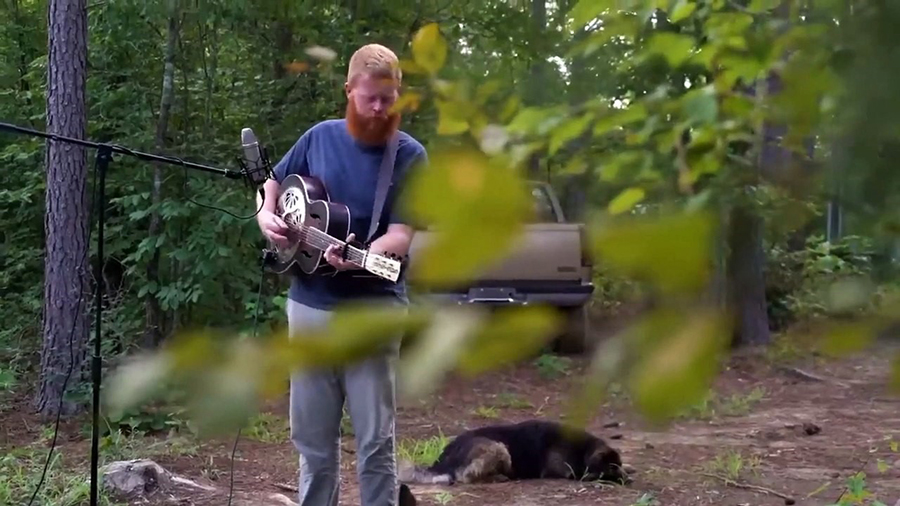Warwick Cairns highlights why our industry urgently needs more diversity of thought to be truly effective.
Before you say anything, I’m not talking about what you think I’m talking about.
When I say ‘We urgently need more diversity in advertising’ I’m absolutely not talking about the colour of your skin. Or your pronouns, or your protected characteristics.
Because the fact is, whoever we are in this business, wherever we come from and whatever we identify as, almost all of us end up as different colours and flavours of the exact same thing, which I suppose you could call big-city cosmopolitans.
And meanwhile there’s a whole other world going on out there, but most of the time we in the media and marketing industries don’t even see it until it gets so big that we can’t avoid it.
This past summer, for example, the two biggest hits in the US Billboard Chart were from people who, chances are, you’ve never even heard of, saying things you probably never hear people say.
The first was country singer Jason Aldean who, in August, overtook the likes of Taylor Swift, Miley Cyrus and Ariana Grande with Try That In A Small Town, his controversial ode to the values of a rural America populated by good ol’ boys, raised right, who don’t put up with big city nonsense like street crime, ‘cussing’ at cops, and gun control. It shot to number one nationally. It charted in Canada too. It achieved the biggest sales for any country record for over ten years.

Jason Aldean advises city types not to try that in a small town.
Just two weeks later, Aldean was replaced by an even bigger and even more unexpected hit in the form of Oliver Anthony, a complete unknown from backwoods Virginia with no previous chart history of any kind whatsoever. His home-produced song Rich Men North of Richmond was sung in a clearing in a forest on an unaccompanied resonator guitar with an audience of three dogs. It pinned the blame for pretty much all the ills of the world on city folk up there in fancy places like New York and Washington. It made a dig at establishment figures hanging out on Jeffrey Epstein’s private island (“I wish politicians would look out for miners, and not just minors on an island somewhere”). It struck a nerve. It was streamed an astonishing 17.5 million times in a single week.

Oliver Anthony performs to an audience of two dogs – and 17 million humans.
It is not incumbent on any of us to subscribe to the culture and the views of people like Jason Aldean or Oliver Anthony. But it is incumbent on us to be aware of them and to understand where they’re coming from. Because if we don’t, we can end up being slapped round the face by events that ought to have been wholly predictable – like the multibillion-dollar backlash Bud Light suffered from its ill-fated signing of transgender influencer Dylan Mulvaney.
Right now, here in the UK, there seems to be a case of mutual cultural incomprehension brewing, in the growing disagreement between the 180-odd international brand owners and agency networks that have signed up for the new Conscious Advertising Network (CAN) and a group of opponents which now includes Rishi Sunak and his government.
CAN is an industry partnership that aims to ‘break the economic link between advertising and harmful content.’ Which would seem to be a good thing, you might imagine. But it all comes down to what you define as harmful content. As in many things, big-city cosmopolitans take one view, while others may take a different view altogether.
Before they set up CAN, the group’s founders were full-time activists for an organisation called Stop Funding Hate. Their view of harmful content at that time was that it included not just content that broke the law but also the editorial line taken by much of the mainstream British media on some of the contentious issues of the day. It led them to organise advertiser boycotts against the Sun, the Mail, and the Daily Express. It also led them to organise a pre-emptive boycott against the still-to-be-launched GB News before it went on air, in anticipation of its content being harmful.
If you tend to agree with the sentiment behind those boycotts, then you probably don’t take any issue, or see any problem, with a new industry body being run by the people who organised them. Particularly since CAN’s founders say they don’t do boycotts any more. They say that all they’re doing now is to help make the world a kinder, more welcoming place. Which may be so. But the group’s opponents aren’t reassured. Sections of the media are calling it a ‘cancel culture’ group. Meanwhile, on 2nd September, the UK Culture Secretary Lucy Frazer announced that ‘neither I nor my department are working alongside the Conscious Advertising Network nor giving consideration to their initiatives.’

Culture Secretary Lucy Frazer
Whichever side of this you find yourself on, it can be tempting to write off those who disagree as irrelevant, misguided, or just plain wrong. But the moment we do that, we lose a customer, a partner, or a chance to make a difference.
In advertising and marketing we exist in something of a cosmopolitan bubble. I should put my hands up and say mea culpa here. Possibly youa culpa too. It means we end up thinking, saying and doing things that make complete and perfect sense to us, but may seem little short of crazy to those who don’t share our worldview.
In an article Hanneke Faber, President, Unilever Foods & Refreshment, said, “fighting against food waste — that is the purpose of Hellmann’s”. In response to that positioning, fund manager Terry Smith, wrote a letter to shareholders, saying that “a company which feels it has to define the purpose of Hellman’s mayonnaise has, in our view, clearly lost the plot. The Hellmann’s brand has existed since 1913 so we would guess that by now consumers have figured out its purpose (spoiler alert – salads and sandwiches)”.
Effective communication is all about persuasion.
It’s about getting others to accept your ideas as their own. But it’s hard to persuade others when you don’t know how they think and when you don’t understand what their motivations and concerns might be. So it would probably be a good first step if we started to think more about the diversity of opinion represented in our businesses.
And when it comes to our ideas, we should think beyond the metropolis to judge how well or badly they are likely to go down.
In the words of Stetson-wearing Jason Aldean: Try that in a small town. See how far ya make it down the road.

